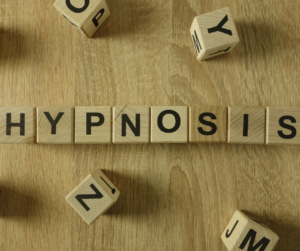In today’s digital age, memes have become a ubiquitous form of communication, offering a lighthearted way to convey ideas, humor, and cultural references. Among the myriad of memes circulating on the internet, hypnosis memes have emerged as a popular trend, often depicting exaggerated or humorous portrayals of hypnosis. But behind the humor lies a deeper question: What is the impact of these memes on our perception of hypnosis and its role in anxiety management?

Hypnosis memes typically take various forms, ranging from humorous images and videos to witty captions and pop culture references. These memes often play on common stereotypes and misconceptions surrounding hypnosis, portraying it as a mystical or mind-controlling phenomenon. While many of these memes are intended purely for entertainment purposes, they can inadvertently perpetuate misinformation about hypnosis and its therapeutic benefits.
Dispelling Myths vs. Perpetuating Misconceptions
On one hand, hypnosis memes can serve as an opportunity to dispel myths and misconceptions about hypnosis by presenting accurate information in a lighthearted and engaging manner. Memes that humorously debunk common stereotypes or explain the science behind hypnosis can help demystify the practice and educate the public about its legitimate uses in anxiety management and other therapeutic contexts.
However, there is also a risk that hypnosis memes may perpetuate harmful misconceptions and undermine the credibility of hypnotherapy as a legitimate therapeutic modality. Memes that portray hypnosis as a form of mind control or manipulation, or that trivialize its potential benefits, may dissuade individuals from seeking out hypnotherapy as a viable option for addressing anxiety and other mental health concerns.
The Power of Misinformation
It’s essential to recognize the potential impact of misinformation spread through hypnosis memes, particularly in the context of anxiety management. Anxiety is a complex and multifaceted condition that can significantly impact an individual’s quality of life, and seeking effective treatment is crucial for long-term well-being. When hypnosis is misrepresented or ridiculed in memes, it can deter individuals from considering it as a legitimate treatment option, depriving them of potentially valuable resources for managing their anxiety.
As creators and consumers of digital content, we have a responsibility to promote accurate information and raise awareness about the legitimate uses of hypnosis in anxiety management. Instead of perpetuating stereotypes or spreading misinformation through memes, we can harness the power of social media to educate others about the benefits of hypnotherapy and encourage open dialogue about mental health.
While hypnosis memes may offer a moment of levity in our digital lives, it’s essential to consider their broader implications, particularly in the context of anxiety management. By promoting accurate information and dispelling myths about hypnosis, we can help empower individuals to make informed decisions about their mental health and access the resources they need for support.
So, the next time you encounter a hypnosis meme, take a moment to consider its message and the impact it may have on shaping perceptions of hypnotherapy. Together, let’s strive to foster a culture of understanding, acceptance, and support for those navigating the complexities of anxiety and mental health.
*If you want to learn more about what hypnosis really is and experience a free session, watch my program here.
